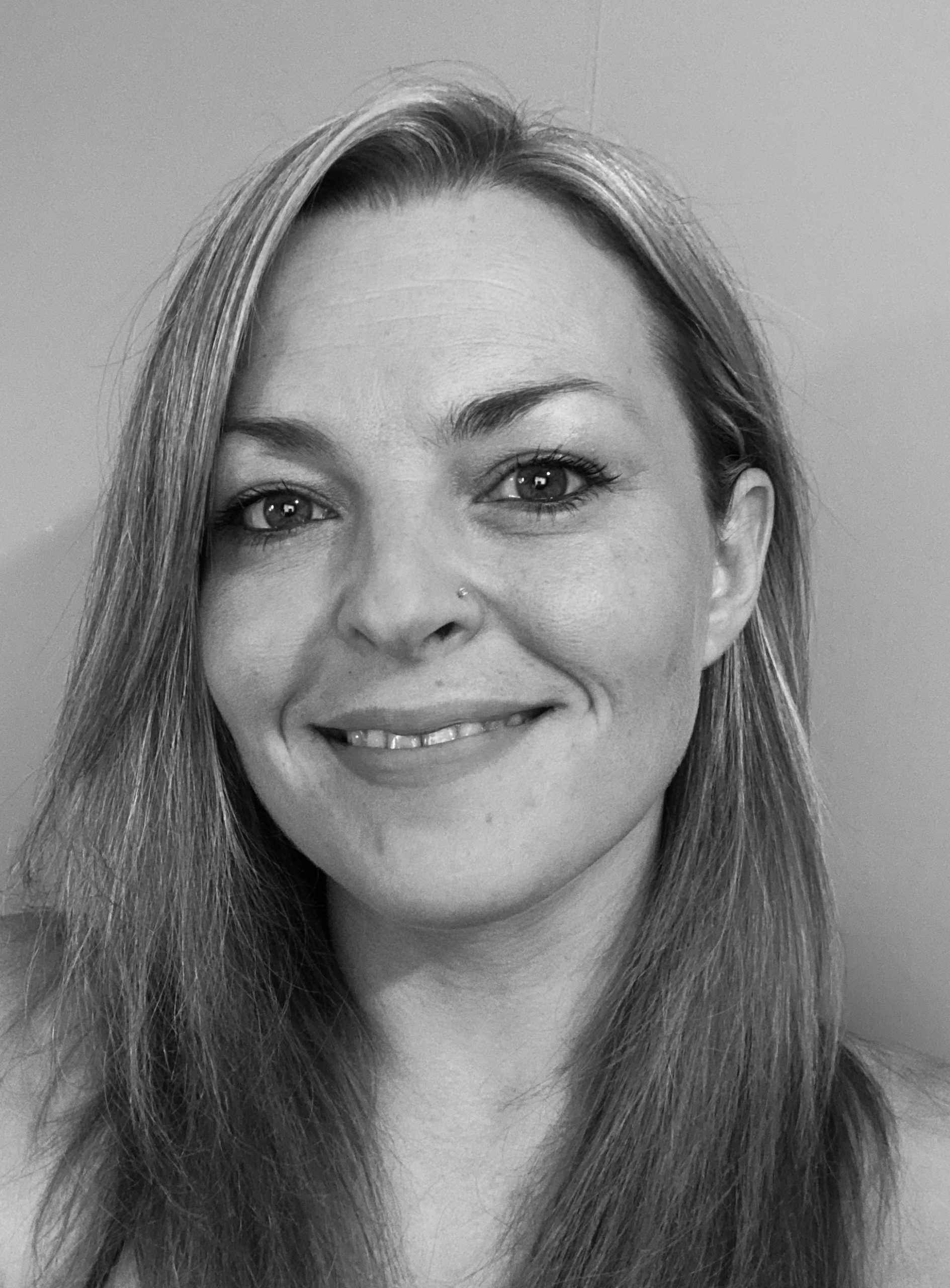
Dr Helen Galloway, Clinical Psychologist, M.A.(Hons), M.P.H., D.Clin.Psy.
I am a founder and director of The St Andrews Practice, along with Dr Shelagh Morrison.I completed my undergraduate MA(Hons) degree in psychology at Glasgow University in 2007, my Masters Degree in Public Health at Dundee University in 2011, and my Doctorate in Clinical Psychology at the University of Edinburgh in 2015. I have worked in the NHS for ten years in a range of general adult and specialist mental health services, across three different health boards in Scotland.
Most of my experience has involved working within Community Mental Health Teams, and inpatient services, undertaking individual and group interventions with adults with moderate to severe mental health difficulties. I am trained in a range of psychological treatments including Eye Movement Desensitisation & Reprocessing (EMDR), Cognitive Behavioural Therapy (CBT), Compassion Focussed Therapy (CFT), and Schema Therapy (ST).
I enjoy working with people with a range of difficulties, though I have a special interest in trauma, shame, and self-criticism. I will focus on understanding your personal story, consider how you came to reach this point in your life, and use strategies that are specifically targeted to your unique situation and therapeutic goals. I will recommend a treatment plan based on your needs and preferences, with length and frequency of sessions negotiable. Psychological therapy is based on understanding and facilitating change in your inner world to enable you to live a more fulfilling life. It may be necessary at times for me to empathically challenge any unhelpful or distorted thinking patterns or so that you can get the best out of your therapeutic experience.I have a long term interest in ADHD and neurodiversity, and have two publications on quality of life in ADHD in peer reviewed journals.
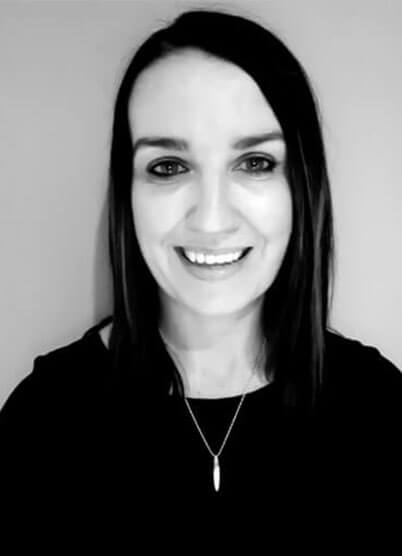
Dr Shelagh Morrison, Clinical Psychologist, M.A.(Hons), D.Clin.Psy
I obtained my MA (Hons) degree in Psychology in 2000, receiving a 1st class honours. In 2007 I completed my Doctorate in Clinical Psychology. Both degrees were undertaken at the University of Glasgow. My clinical experience working in mental health totals eighteen years. This includes working within NHS Community Mental Health Teams for twelve years where I delivered individual and group interventions, and was involved in service development, training, consultation and supervision. I have recently left to concentrate on developing the St Andrews Practice service.
I am trained in a variety of therapeutic approaches including Cognitive Behavioural Therapy (CBT), Compassion Focused Therapy (CFT), and Schema Therapy (ST), Mindfulness, and Behavioural Family Therapy (BFT), and Acceptance and Commitment Therapy (ACT). I am fascinated by the interplay between the physical and psychological aspects of trauma and anxiety. As a fully trained Eye Movement Desensitization and Reprocessing (EMDR) practitioner I am particularly focused on growing my expertise in this innovative therapy, and seeing results across a range of trauma and anxiety presentations in my clients.
I have extensive experience and interest in working with neurodiversity, with individuals seeking an adulthood diagnosis of Autistic Spectrum Disorder (ASD) and Attention Deficit Hyperactivity Disorder (ADHD). I have witnessed the distress of individuals who have progressed through their lives with a narrative that they are somehow ‘different’, without sufficient explanation for why. Assessment often provides answers and relief in some way (if not a diagnosis of ASD, a story or ‘psychological formulation’ of why difficulties have arisen). I am neurodiversity-affirmative, cognisant of the strengths and challenges that having a diagnosis can bring for individuals and their loved ones. In the last few years since establishing The St Andrews Practice I have continued to grow my clinical experience in utilizing evidence based psychological therapies, adapted as appropriate, with neurodivergent individuals .
As a Clinical Psychologist, my practice is driven by a number of philosophies. Therapy works best when approached in a collaborative, explorative way. I will listen and work with you to formulate your unique story (‘formulation’) and together tailor a treatment plan. Whatever therapeutic approach undertaken, I am invested in developing a warm, empathic and validating therapeutic relationship. Therapy can be hard work, and can involve confronting difficult emotions, thoughts, behaviours and memories. It can involve increasing insight, and it can involve challenge. My philosophy is that effective therapy goes beyond a set of tools and techniques, it is about creating a safe space, finding a language which works for the client, and flexibility to integrate different therapeutic approaches.
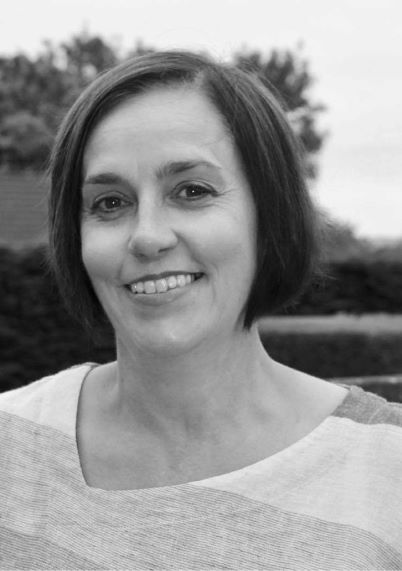
Lisa Paxman, Highly Specialist Occupational Therapist, DIP, MA PG (DIP)
Lead for Neurodiversity Interventions
I qualified as an Occupational Therapist (OT) from St Andrews School of Occupational Therapy in Northampton in 1992 and have over 30 years of experience working in the NHS across a range of medical and mental health specialities. It is important to me to ensure that I am up-to-date with the current developments and this reflected in my clinical practice. This led me to further studies to expand my knowledge and develop my skills in other disciplines and practice such as counselling, and cancer and palliative care. More recently I gained a Master’s Post-Grad certificate in advance practice with Dundee University (2015), and qualifications to administer the Diagnostic Interview for Social and Communication disOrders (DISCO), used to diagnose autism. In 2017, I completed a Master’s Post-Graduate Diploma in Ayres®Sensory Integration with Ulster University, qualifying me to assess and treat sensory motor and sensory sensitivities. I am a Certificated Disability Management Professional having completed the education programme delivered by the National Institute of Disability Management and Research (NIDMAR), which aims to restore and maintain workers abilities (employment focused).
Prior to joining the Saint Andrews practice I worked in a specialist autism service (mental health) for seven years. This supported my interest in neurodiversity, and lead me to explore my own differences, which resulted in diagnoses of dyslexia and ADHD. This further prompted me to study the sensory differences often experienced by the autistic, dyslexia and ADHD population. While Sensory Processing Disorder is not yet recognised as a medical condition (diagnostic criteria), it is increasingly acknowledged as having a significant impact on a person’s ability to function (productivity, leisure and social).
As and OT I use a strength-based approach to support people to identify what they are good at and the barriers that are preventing them from managing activities that are important to them: the things they need to do and those they enjoy doing. Examples include using Executive Functioning coaching to increase the efficient management of everyday tasks, studying and working (planning, organising, memory etc); managing work demands (workplace assessment, advice on reasonable adjustments, work coaching, and funding through access to work); and leisure and relaxation (self-regulation, time management)
My particular interest is in sensory differences. The way our brain processes sensory information from our environment and our bodies – what we see, here, taste, touch and how we move – is an important essential part of how we manage any activity. Sensory differences can interfere with your ability to focus, learn and organise yourself (body and mind), and may mean it is difficult for you to manage your emotional responses. Through assessment and treatment planning I would to help you to develop an understanding of the sensory inputs, why over or under- responsivity is occurring and how to use sensory input to manage responses, helping you achieve what you want and need to do.
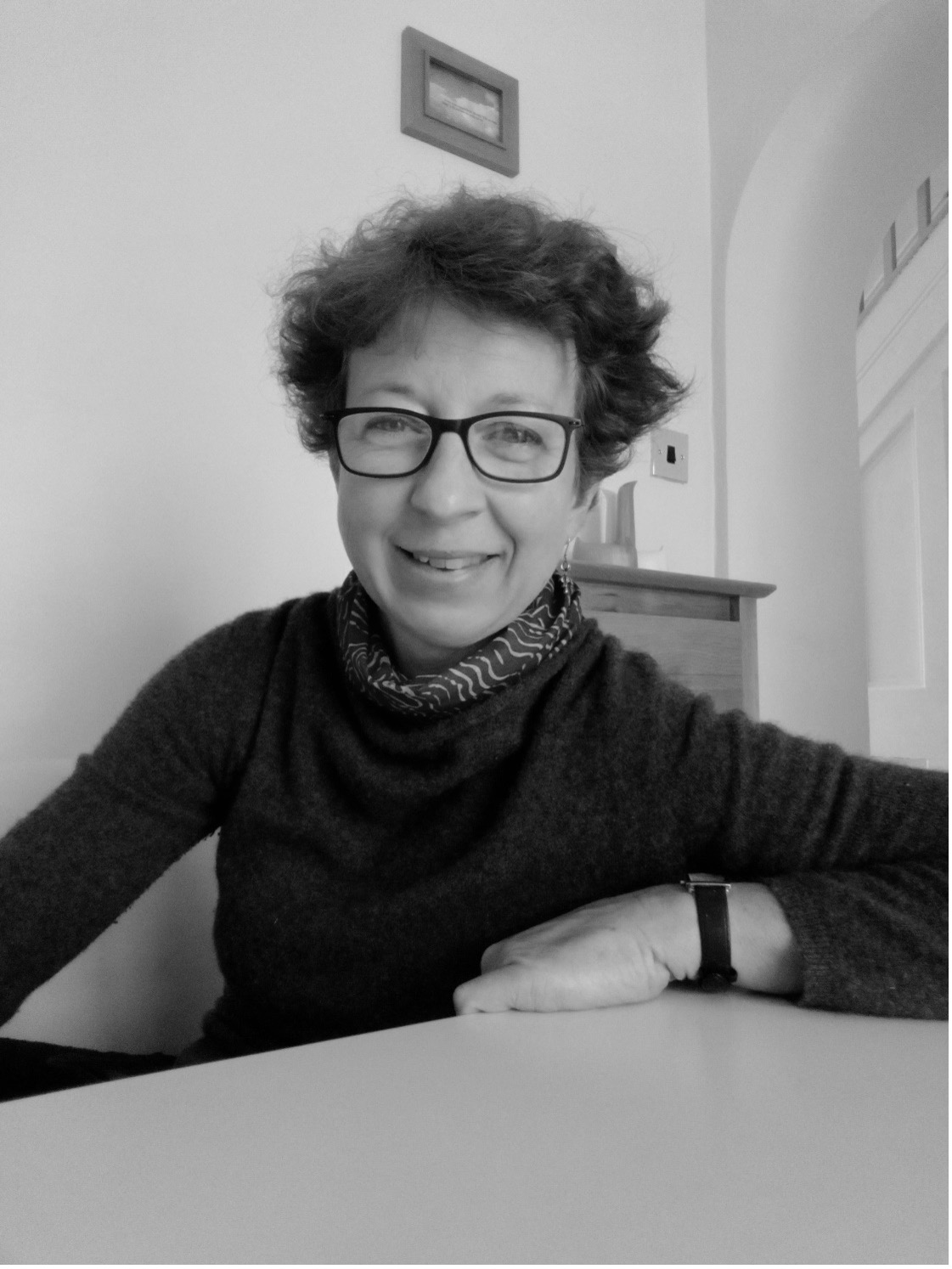
Dr Helen Simonsen, Consultant Psychiatrist, MBChB, DRCOG, MRCPsych
I have been a senior consultant psychiatrist for more than a decade and have worked exclusively in the NHS for 24 years. My postgraduate qualifications are DRCOG and MRCPsych, with dual accreditation in Rehabilitation and General Adult Psychiatry. I’ve trained in Neurosurgery, Neurology and A&E plus vocational training for General Practice. I’ve worked in NHS wards, theatres and intensive care and seen a large variety of physical and psychological trauma. Through all my professional roles, and as a patient myself, I’ve appreciated what it is to be listened to and treated as an individual, not a ‘case.’
I’ve worked in both inpatient and community mental health settings, leading a multidisciplinary team in Aberdeen which supported people through hospital admission and into the community. In recent years I’ve worked entirely in the community, focusing on adult mental health in clinics, people’s homes and care homes around Dundee and Angus. My daily work involves meeting individuals who experience problems such as depression, anxiety or psychosis, often with underlying trauma. Sometimes people have complex problems, and need time to explain their experiences before we agree on a diagnosis and individual treatment plan. I will also assess the impact of physical, psychological and social problems on mental health, and whether a physical problem might explain symptoms, such as thyroid disease or the menopause. I can discuss the safest treatment options available in the context of existing physical problems, such as cardiac disease, and review the impact of medication.
I think it is a privilege to hear about people’s experiences and my work has shown me that people from all walks of life and economic backgrounds can experience mental health problems. I’ve met a diverse range of people and approach each assessment with an open mind. Sometimes I need a translator, and I think it is important to be aware of cultural and religious contexts. I believe people are not ‘a diagnosis’ but a diagnostic label, for all its pros and cons, can be useful to direct treatment and self-awareness, helping people and their families to research what has helped others with similar difficulties. My aim is to treat everyone to the same standard that I would expect for a member of my own family, with an individual, holistic and collaborative approach to mental wellbeing grounded in evidence-based treatment.
I realise there is much we don’t know when it comes to matters of the mind. In recent years my focus has been the assessment and treatment of individuals with PTSD, autism and ADHD, often those who have been mislabelled in their past or who have lived overseas in places where such conditions are misunderstood or unheard of. My current interests include environmental influences in the development and management of ADHD and ASD.
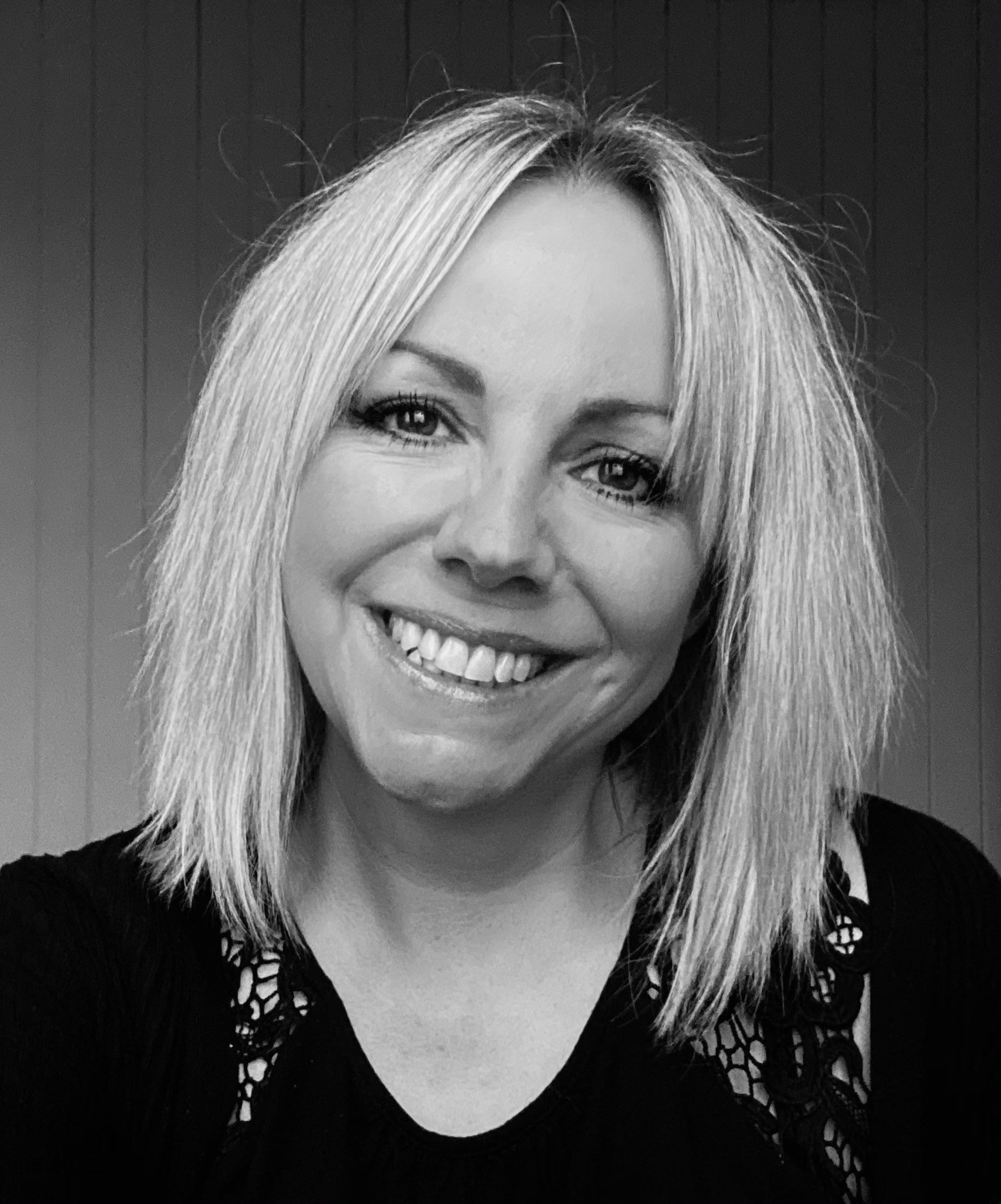
Dr Fiona Sturrock, Clinical Psychologist, M.A. (Hons), D.Clin.Psy
I graduated from The University of Dundee in 1999 with an MA (Hons) degree in Psychology. I completed my Doctorate in Clinical Psychology in 2006 at The University of Edinburgh. I have worked in the field of Adult Mental Health for over 20 years, and with the NHS for 19 years. My early experiences as a Clinical Psychologist were based in both Child and Adolescent Mental Health Services and Adult Primary Care Services. The combination of these fields has influenced and informed my practice over the years and I continue to hold an interest in the role of early experiences in childhood and how they may influence the relationships we hold with our adult self and with others.
One of my long-standing interests has been in working with adult survivors of childhood abuse and I am continually humbled at the human strength of spirit to survive. As a practising Clinician in NHS Adult Primary Care Services, I work regularly with individuals who are experiencing suffering and distress, which can manifest in a vast number of ways, for example, in depression, panic, anxiety, to name but a few. Asking for help at our most vulnerable times takes strength. I view therapy as place of safety and respite and a place to catch your breath. It is a place of uncovering and learning, retracing the path that led you to this point and helping you to rediscover your inner skills and strength to move towards your own personal growth and/or goals with hope. In getting to know you and understand you I will draw upon a range of psychological theories and practical therapy models to help us make sense of your difficulties and find some meaning. These theories and models will also guide and inform our therapy in an approach that works best for you.
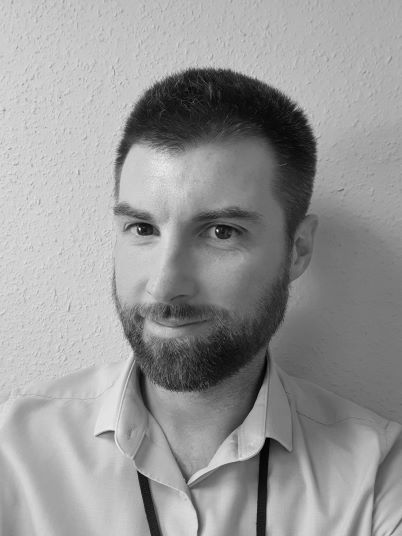
Dr Will McMurchie, Clinical Psychologist, BSc (Hons), D.Clin.Psy
I completed my undergraduate BSc degree in Psychology in 2002 at the University of St Andrews. After gaining work experience in a number of roles, such as supporting individuals with Autism and working within inpatient mental health settings, I completed my Doctorate in Clinical Psychology (DClinPsy) in 2011 at the University of Edinburgh. I have since worked for the NHS for 9 years as part of a Community Mental Health Team providing psychological treatment to individuals with a wide range of difficulties. I have been trained in a range of psychological treatments including Cognitive Behavioural Therapy (CBT), Trauma Focused Cognitive Behavioral Therapy (tfCBT), Acceptance and Commitment Therapy (ACT) and Behavioural Family Therapy (BFT). At the heart of all my clinical work is developing a safe space for patients to be able to openly discuss their difficulties and feel they will be supported in a non-judgemental forum. I believe that developing effective therapeutic relationships is one of the most crucial components for therapy to be effective, and applying this together with evidence based treatment approaches that are tailored to each individual.
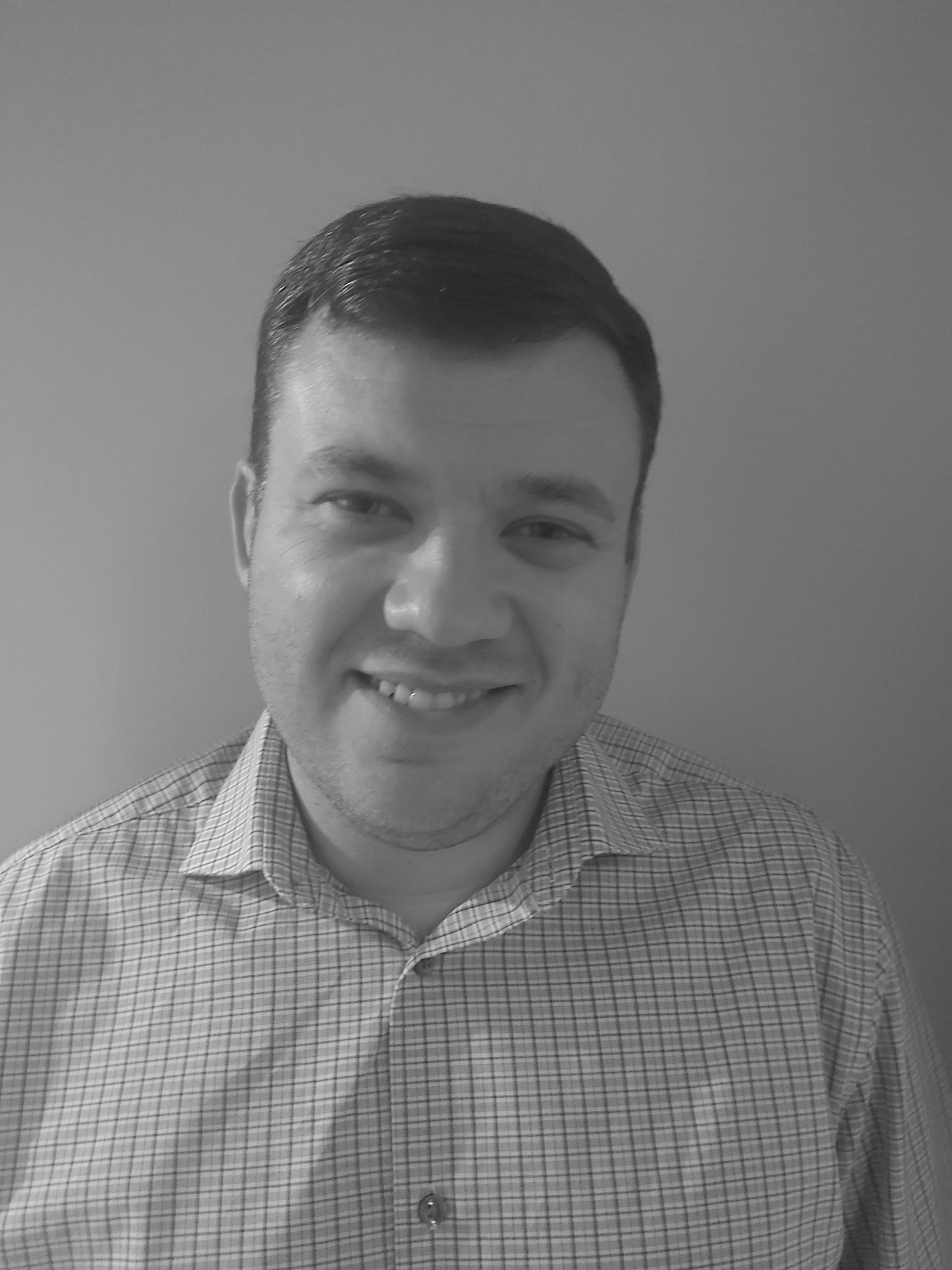
Dr Philip Sharples, Clinical Psychologist, BSc (Hons), D.Clin.Psy
I completed my BSc (Hons) degree in Psychology at the University of Liverpool in 2007 and went on to complete my Doctorate in Clinical Psychology in 2016 at the University of Glasgow. I have also undertaken additional training programmes, including: Cognitive Behavioural Therapy (CBT); Behavioural Family Therapy (BFT); and Schema Therapy. I often will draw upon Compassion Focus Therapy (CFT), Mindfulness and Acceptance and Commitment Therapy (ACT) approaches in my clinical practice. I have around 13 years experience working within both private and public healthcare settings. During the last 10 years I have worked across three different NHS health boards, predominately in community mental health settings, providing assessment and both individual and group treatment working with mild to severe mental health difficulties.
My therapeutic stance prioritises creating a safe, collaborative environment to enable clients to reflect and make sense of factors that may influence their mental health. I will initially focus on a detailed psychological assessment and individualised formulation to understand how mental health difficulties have developed over time using relevant psychological theory. Following this I work with my clients to identify personally meaningful therapeutic goals and targeted treatment plans based upon evidence based psychological treatments.
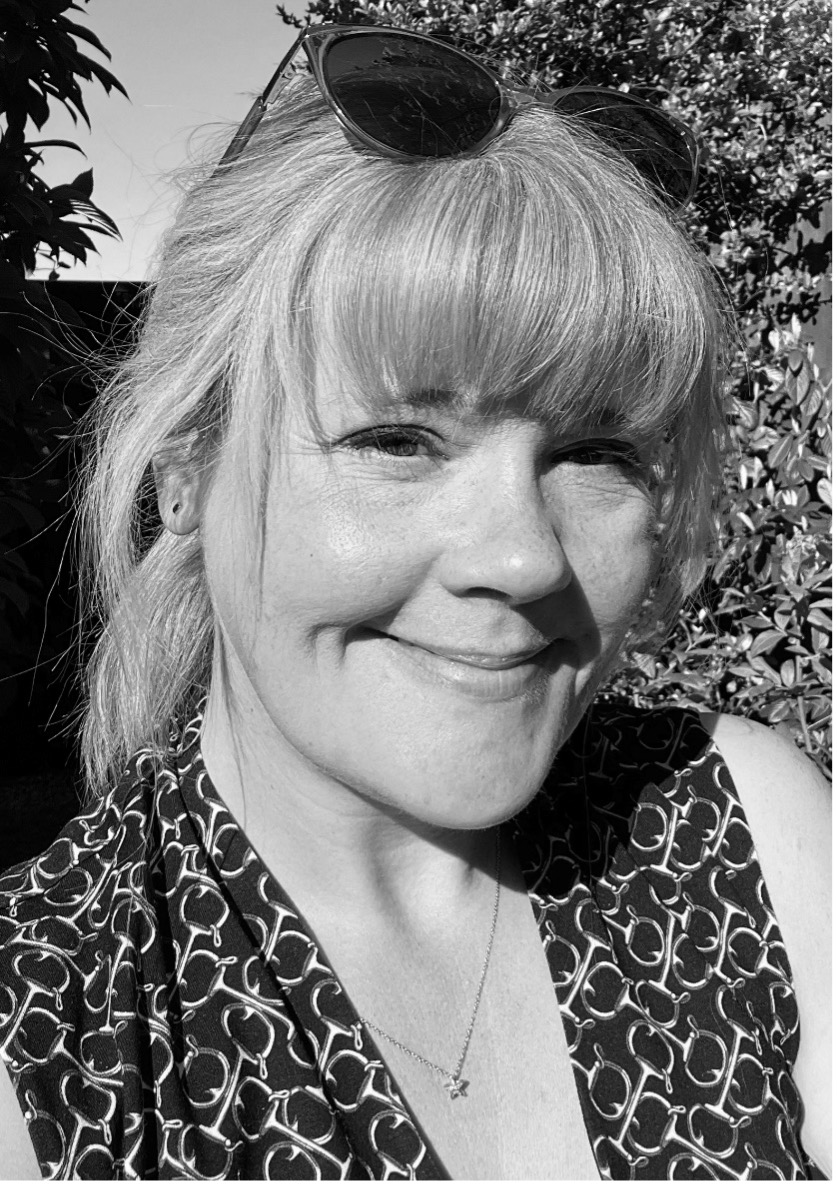
Susan Munro, Specialist Speech and Language Therapist BSc (Hons), MSc
I trained as a Speech and Language Therapist at the University of Glasgow, graduating with my BSc (Hons) degree in 1995. I then continued my professional development obtaining my Post-graduate Certificate in Advanced Speech and Language Therapy from Strathclyde University in 1998 and completing my MSc in Advanced Practice in Health and Social Care in 2008 at the University of Dundee. I have worked in a range of different settings with diverse populations since qualifying, but over the last 14 years my clinical practice has focussed on adult mental health with a particular clinical interest in neurodivergence. I continue to work in an NHS role supporting the work of Community Mental Health Teams and for the last 10 years I have also worked in a specialist adult autism team where I undertook diagnostic assessments as part of a multi-disciplinary team.
Throughout my career I have seen how difficulties affecting the ability to communicate with others can have a negative impact on a person’s sense of self, their relationships and their ability to participate in wide range of activities from accessing education, to securing employment and engaging in leisure pursuits. As such, individuals who experience difficulties with their speech and/or language abilities also often experience issues with their mental health and wellbeing. As a Speech and Language Therapist I aim to ensure that the communication challenges an individual experiences do not prevent them from accessing either their mental health treatment or other activities that support their mental wellbeing. This work is therefore often undertaken in partnership with another profession such as Clinical Psychology or Occupational Therapy. Speech and Language Therapy can also offer therapeutic intervention to enhance a person’s communication skills or to develop effective management strategies.

Jenny Gray, Educational Psychologist, BSc (Hons) MSc CPsychol
After completing my BSc (Hons) in Psychology in 2008 at Queen Margaret University in Edinburgh I worked in an independent school for a number of years before continuing my studies in 2014 at Dundee University and completing my postgraduate MSc in Educational Psychology. From there I worked as an Educational Psychologist (EP) for a Scottish local authority until 2022 when I began to focus on independent practice and pursue further training opportunities. I have always been interested and passionate about supporting learners who are struggling in school, especially those who have experienced adversity and trauma. I have significant experience developing and delivering training for schools, with a particular focus on nurturing approaches. More recently, my focus has been on Eye Movement Desensitisation & Reprocessing (EMDR) therapy, where I have been working with children, adolescents and adults.
As an EP, I work with children and young people to reach solutions to their educational difficulties and achieve positive outcomes. This is achieved through consultation and assessment where I work collaboratively with those who know the child best, as well as the child themselves, to explore and identify individual strengths, areas for development, educational needs and help inform supportive interventions. It is important to take into account how the child’s performance compares to others of a similar age but also how they approach learning tasks and what type and level of mediation makes the most impact on their performance. My assessments are child-centred, holistic and interactive, they consider a range of factors that may be contributing to a learner’s needs. These include emotional & social, cognitive, academic, language/communication, physical/sensory and environmental factors. This helps to provide a full profile of their educational needs. The views of the child, parent/carer, teacher and other professionals are central to this process. I offer one-to-one interventions where I work with the child or young person to try to resolve difficulties related to trauma, emotional regulation, anxiety, self-esteem and social difficulties to name a few. One of the aims of this work is to establish a trustworthy safe space where children can feel listened to, understood and accepted. In describing myself, I would say that fairness, equality, honesty and kindness are at the heart of everything I do. I am HCPC registered and a Chartered Psychologist with the British Psychological Society.

I achieved my undergraduate degree in Pharmacy at Wannan Medical University, China. In 2017, I came to the UK for my Msc degree in University of Leeds in Chemical Biology and Drug Design. Because of my strong interest in psychology, I am currently completing a conversion Msc course in Psychology at the University of Northumbria, which I am thoroughly enjoying. I am always looking to explore and expand my knowledge within clinical psychology field, with the hope that I can provide great care and expertise in the future. I am very grateful that I get to help the practice conduct research and influence the future of clinical psychology.
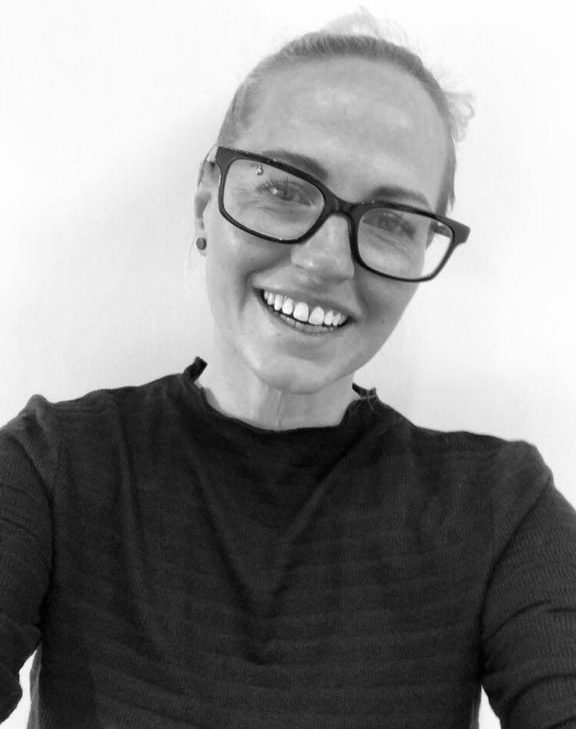
Sheelagh (or Sheels as we know her) is responsible for managing the business, operational and communicative tasks associated with keeping The St Andrews Practice running smoothly on a day to day basis. Having previously run her own businesses, she brings a range of skills and experience to her role. Sheels is often a first point of contact for new clients, and responsively addresses any non-clinical issues that arise. Sheels also works closely with the practice directors and with staff and associates to make sure they have the information and resources to complete their clinical work optimally. Her calm and containing presence make her very popular with clients, clinicians and stakeholders. Sheels shares a passion for the overarching vision of The St Andrews Practice, and often goes above and beyond to ensure clients’ needs are met in all possible ways. She is a significant asset to our team.
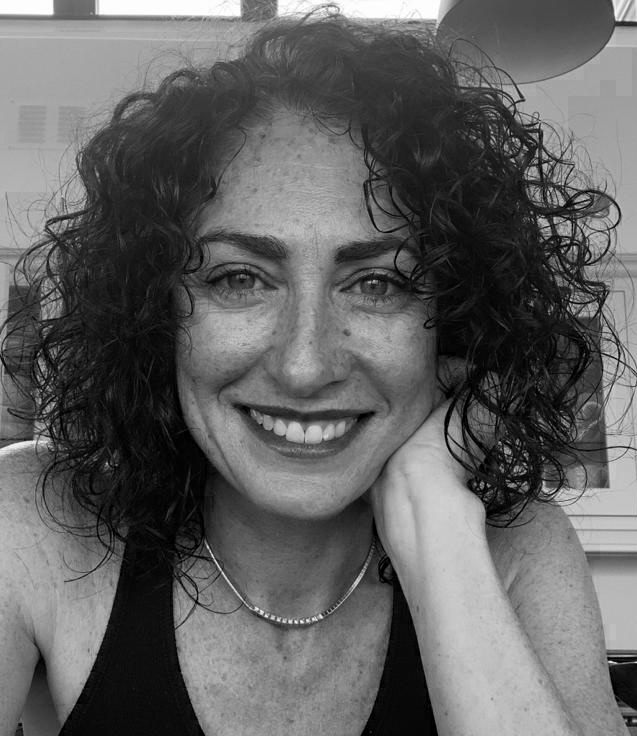
I graduated from the University of Massachusetts in 1998 with a degree in Human Nutrition and continued on to obtain my certification as a Registered Dietitian (RD) in 2007. After practicing as a clinical dietitian in large urban teaching institutions (The Children’s Hospital of Philadelphia, Hahnnemann University Hospital in Philadelphia, and The University of Miami) for 7 years, I relocated to Edinburgh and earned my MSc in Food Science and Nutrition from Heriot Watt University in 2016.
My training as a Registered Dietitian included biochemistry, physiology, applied sciences and research methods which underpin nutrition and dietetics. These are complemented by social and behavioural sciences and the theories of communication to support the devolpment of skills required for my professional dietietic practice. Registered Dietitians are the only health professionals that assess, diagnose and treat dietary and nutritional problems at an individual level. Registered Dietitians, as opposed to nutritionists, are the only nutrition professionals to be regulated by law and are governed by an ethics code to ensure our work is of the highest standard.
Working in the hospital setting allowed me to support in-patients and those in the outpatient settings, focusing on individuals with cancer, heart disease, gastrointestinal disorders, diabetes and liver disease. Having also been in private practice since 2010, I have had the pleasure of working with clients seeking specific goal-oriented nutritional aims. This is where my true passion lies- supporting people to overcome barriers which will encourage good food choices for optimum health.
My focus here at the St Andrews Practice is to provide evidenced based, individual care plans for those across the life-span from aged 12 upwards, with ADHD, ASD, Avoidant Restrictive Food Intake Disorder (ARFID), food aversions, food intolerances, trauma , perinatal concerns, and those recovering from disordered eating. I have extensive experience with those suffering with primary digestive issues (i.e. IBD/IBS) and those secondary to trauma. I am continuing to developing my expertise around the impact of mental health and neurodiversity on dietary preferences and challenges , and aim to work closely with the team where required. I believe in a food-first approach and supplementation when needed. Starting new food habits can be challenging, but we will approach it together- one meal at a time.

I graduated from the University of Dundee in 2007, receiving a post-graduate MSc diploma in Cognitive and Behavioural psychotherapy. I gained full accreditation in cognitive behavioural psychotherapy in 2009. I have worked within various National Mental Health Services, working with adolescents through to older adults, for over three decades. I have worked internationally within the Military Tri-Services, University settings and also private sector. My therapeutic work has involved treating individuals across their lifespan who have experienced: mild, moderate to severe and enduring mental health difficulties. Providing, thought through psychotherapy treatments to individuals with varied and often complex range of diagnosis (es) and psychological challenges. I am trained in a range of psychological theories and treatments; Cognitive Behavioural Therapy (CBT), trauma-focused CBT, Transactional Analysis (TA), Psychodynamic Therapy, Person Centred Therapy, Eye Movement Desensitisation and Reprocessing (EMDR), Schema Therapy (ST), Mindfulness, Compassionate Focused Therapy (CFT) and Acceptance and Commitment therapy (ACT).
I hold and practice the belief that psychotherapy works most effectively when approached in an open, collaborative, and exploratory manner. Within psychotherapy I will often explore the role of how early experience (attachment) and significant adult experiences and may interplay with our view of self, others and the world, these facilitating the influencing of patterns of feelings, behaviours and thinking, some of which can be helpful, neutral and some which, often inadvertently, not. It is my intention to listen and work with you to formulate your unique story/conceptualisation and from this tailor a line of treatment, be this a single therapeutic approach or where complexity is experienced more often a specialised concurrent, coherent, blended approach towards difficulties and treatment is required. I have an interest in working with life patterns (which may be of long-term or of a shorter /acute duration) particularly emotional, behavioural and cognitive patterns, especially patterns which, hinder people living life to their potential.



